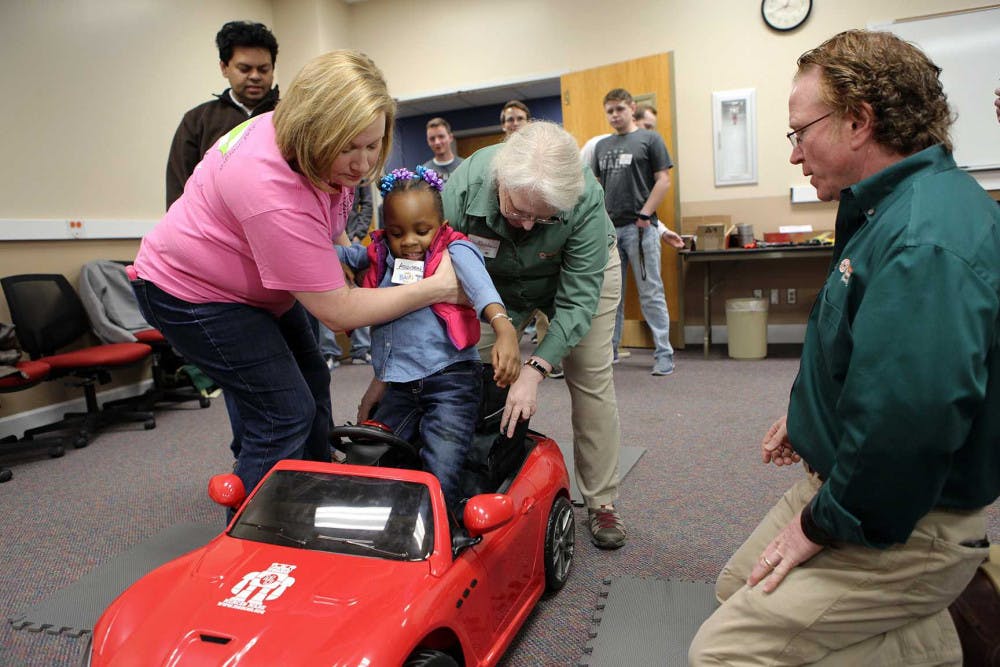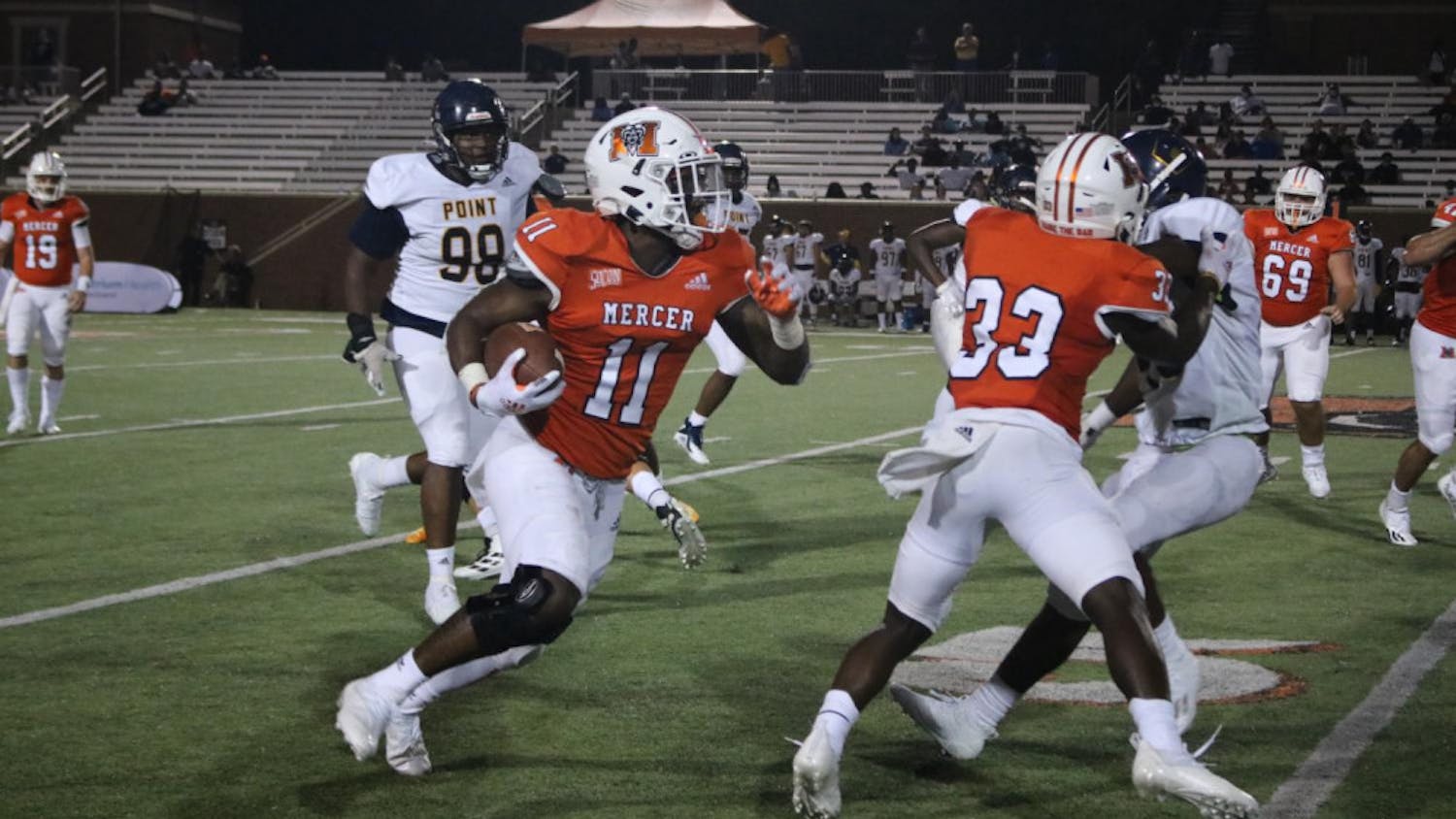In December of 2016, some of the Mercer Engineering Scholars customized power wheel racing cars for pediatric patients that struggle to socialize because of physical disabilities. These cars would allow the students to ride around with other children their age. We hosted an event, Go Baby Go, for about 11 kids ages 4-11.
The children were selected through an interview process, and on build day, each car was modified to fit an individual need. Physical therapists also attended the event.
Prior to the event, the sophomore and senior Engineering Scholars met about 3 times, planning and customizing. This collaboration prior to the event really helped in building a team spirit between the faculty and students, so that by build day, we were ready to work with each other effectively and efficiently for the good of the children.
Ferrari cars were used, and we spent a lot of our time learning how the cars are usually put together, understanding the design of the cars and figuring out how we’re going to modify them to best suit the children. Before we begin designing these new and improved cars, we took the cars apart to reroute the wires for a safer use. There was also safety pipes and harnesses built into the mini vehicles. We made sure to add the harnesses securely and in a way that the fasteners would not irritate the children while they drove.
There was one student, Olivia, who was born without upper limbs. The steering wheel was modified so that she could properly use her feet to turn the wheel.
The professors that I was involved with were Environmental Engineering Professor Phil McCreanor, who led the event and oversees the engineering scholars program, Arash Afshar, a mechanical engineering professor and Pablo Biswas, an industrial engineering professor. McCreanor was available to everyone for the entire process, guiding us in the building process and offering simple solutions to problems frequently encountered by the building teams. I worked with Afshar during the preparation process to prep the cars for the build day.
It was fun to get to work alongside the professors whom we had already taken classes with. I was able to interact with the professors on a personal level rather than as a student in the classroom.
This event showed the good that we were capable of doing with our current engineering skillset and what we could accomplish when we worked together. I didn’t realize what kind of impact we were going to make during the preparation process until build day came and all the families arrived.
After meeting the first of the families, I was excited about the kind of work we were about to accomplish. But after completing the first car and watching the child drive away, the effect of what we were doing really sunk in. The child’s face lit up and you could tell this was unlike any other experience they had had in their life so far.
Being a part of that child’s experience was truly rewarding. I could see the direct impact I was having on this child’s life.
A power switch was installed on the back of every car to allow the parents to turn off the car at their discretion. Some cars were even fitted with a handle extending from the back of the car so that the parents could have control over the car while the child was driving. I hope the cars help to improve the child’s social interactions and make it easier for the child to navigate around their household on their own.
Go Baby Go: Mercer Engineering Scholars build power cars for disabled children

In December of 2016, some of the Mercer Engineering Scholars customized power wheel racing cars for pediatric patients that struggle to socialize because of physical disabilities.




